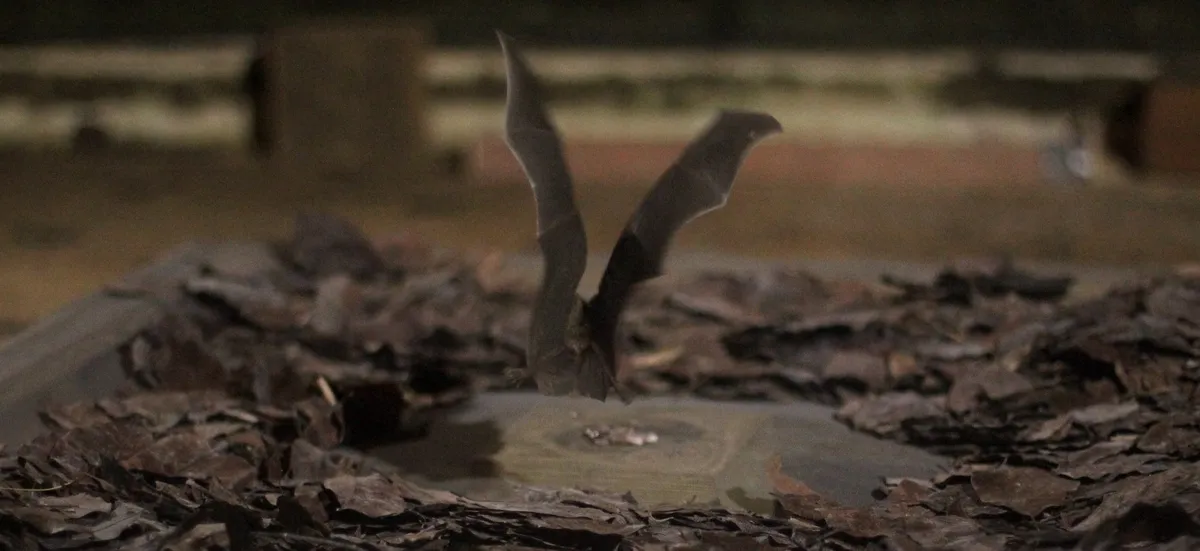This isn’t the first thing that springs to mind when you hear the term ‘bat phone’: researchers at Ohio State University have shown that frog-eating bats can form long-term memories by training them to associate food rewards with phone ringtones.
The team initially exposed 49 lab-based frog-eating bats to a recording of the mating call of the male túngara frog, one of their favourite snacks, and rewarded them with a tasty piece of fish when they flew to it.
Over time, the researchers merged a ringtone into the call until it was completely replaced, but kept the fish reward the same. They then exposed the bats to three other ringtones that were not connected to food rewards to test their behaviour.
Each bat eventually learned which ringtone signalled the food reward and stopped flying towards the unrewarded sounds. After periods varying from 11 to 27 days, the researchers microchipped the bats and released them into the wild.
Then, over the following four years, the team recaptured eight of the trained bats and tested their responses to the reward ringtone. All eight quickly flew to the sound expecting a reward.

“I was surprised – I went into this thinking that at least a year would be a reasonable time for them to remember, given all the other things they need to know and given that long-term memory does have real costs," said lead researcher May Dixon, a postdoctoral scholar in evolution, ecology and organismal biology at The Ohio State University.
"Four years strikes me as a long time to hold on to a sound that you might never hear again.
“The study taught us a lot because there are relatively few studies of long-term memory in wild animals and we don’t have systematic understanding of long-term memories in nature yet.
“If we can collect additional data on different species of bats, we could pick this apart and see what life histories select for long memories.”
Read more about memory: